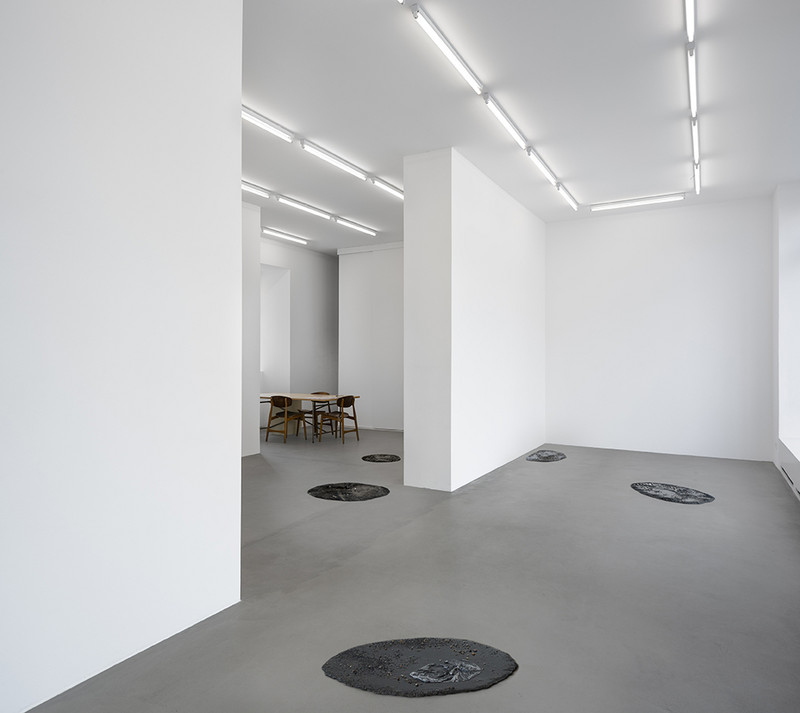Marlie Mul
22 Mar - 20 Apr 2013
Marlie Mul
Boneless Banquet For One
23 March – 20 April, 2013
‘Eau, quand donc pleuvras-tu? quand tonneras-tu, foudre?’
- Baudelaire, Le Cygne
In Modern Painters (1856), John Ruskin invented the concept of ‘pathetic fallacy’, which he described as a general result of the violent feeling that ‘produces in us a falseness in all our impressions of external things’. Trickled down through the branching tributaries of Modern and contemporary literary criticism, today the term implies a misattribution of human sentiment to nature, in particular.
Easy emotional projection is invalid in this tradition – the sea is not cruel, the clouds do not choke the sky, information does not want to be free.
Only with generous poetic license do we see that willows weep. As do wounds, at times my guitar; gently now, your heart. The metaphorical fluidity of pendulous vines, blood and pus, A-minor chords and squalor seeps surreptitiously from strict linguistic form towards the chaos of the romantic; flooding levees and metered verse, and leaving behind the raw concrete of modern architecture a soggy morass, stinking ineradicably with moisture.
Small leaks, too, are ultimately transgressive; faulty engineering on an intimate scale. Slowly collecting as condensation, then damp; later pooling on plains and along planes otherwise hard-and-smooth, obscuring subterranean and other unsavory sources.
It is difficult to observe these ‘natural’ forces (and recent events) without assigning causality, without granting a small measure of agency to external things. Yet to pick a bone with the ecological – falsely encouraged by (human) tradition and individual talent – would be to claim all the sinkholes, tsunamis and torrential rains as pathetic penance.
They are not for us, nor have they ever been.
- Kari Rittenbach
Boneless Banquet For One
23 March – 20 April, 2013
‘Eau, quand donc pleuvras-tu? quand tonneras-tu, foudre?’
- Baudelaire, Le Cygne
In Modern Painters (1856), John Ruskin invented the concept of ‘pathetic fallacy’, which he described as a general result of the violent feeling that ‘produces in us a falseness in all our impressions of external things’. Trickled down through the branching tributaries of Modern and contemporary literary criticism, today the term implies a misattribution of human sentiment to nature, in particular.
Easy emotional projection is invalid in this tradition – the sea is not cruel, the clouds do not choke the sky, information does not want to be free.
Only with generous poetic license do we see that willows weep. As do wounds, at times my guitar; gently now, your heart. The metaphorical fluidity of pendulous vines, blood and pus, A-minor chords and squalor seeps surreptitiously from strict linguistic form towards the chaos of the romantic; flooding levees and metered verse, and leaving behind the raw concrete of modern architecture a soggy morass, stinking ineradicably with moisture.
Small leaks, too, are ultimately transgressive; faulty engineering on an intimate scale. Slowly collecting as condensation, then damp; later pooling on plains and along planes otherwise hard-and-smooth, obscuring subterranean and other unsavory sources.
It is difficult to observe these ‘natural’ forces (and recent events) without assigning causality, without granting a small measure of agency to external things. Yet to pick a bone with the ecological – falsely encouraged by (human) tradition and individual talent – would be to claim all the sinkholes, tsunamis and torrential rains as pathetic penance.
They are not for us, nor have they ever been.
- Kari Rittenbach

